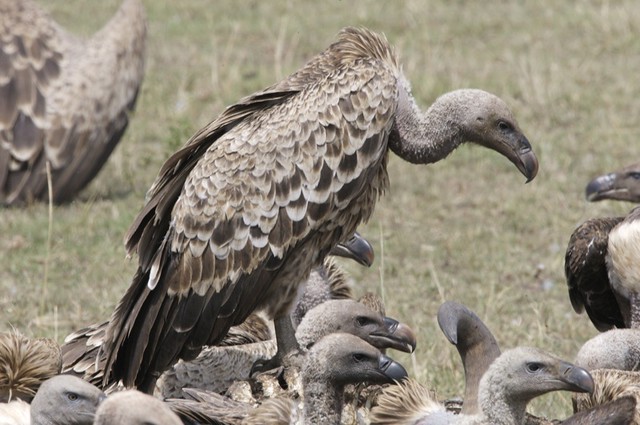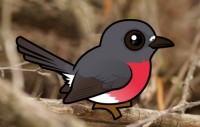Vulture Week: Threats Facing Vultures
We're celebrating Vulture Week because this Saturday, September 6th, marks International Vulture Awareness Day (IVAD). This commemorative day has been celebrated since at least 2009 and aims to highlight the importance of vultures and vulture conservation through education.
Vultures around the world are in trouble. Over half of the world's vulture species are considered to be threatened with extinction or endangered. What are some of the threats facing these ecologically important birds?
Poison, including secondary poisoning
Vultures feed on carrion. In some places, a primary source of food for vultures is domestic cattle. Cattle that has been medicated may be toxic to the vultures that consume them. The anti-inflammatory livestock drug diclofenac is a huge problem for vultures across parts of Asia and Africa. Lead poisoning is a particular problem for the California Condor. Lead ammunition falls into the food chain when hunted animals are left behind by irresponsible hunters. Big game poachers in Africa are also accused of deliberately poisoning vultures to help conceal the sites where their illegal poaching takes place.

Top of the pile by Lip Kee Yap (CC BY-SA 2.0) (Rueppell's Vulture)
Persecution
Some cultures believe vultures to be harbingers of death. There is also belief that vultures threaten healthy domestic livestock. These mistaken beliefs lead to direct hunting or persecution of vultures. Power lines and windmills Due to their large size and tendency to soar in flight, vultures are particularly vulnerable to power line collisions and electrocution. Windfarms placed in areas with strong wind currents may be sharing space with large birds that use these same currents to conserve energy during flight. Windfarms are dangerous for vultures and many other species of bird, especially when mills are placed close to known bird migration routes.
Collisions with vehicles
Vultures that live in populated areas often find roadkill to be an easy source of food, but a dangerous one as well. Roadside dining is unsafe and vultures may suffer the same fate as their last meal.
What can you do to help vultures?
 Vultures can use all the friends they can get! Do your part to help make the world a better place for our vulture friends. You can support policies and lawmakers that favor vultures and the environment. If you know someone that hunts, talk with them about using lead-alternative ammunition and practicing wildlife-friendly habits. If you find yourself driving by birds on the roadside, slow down and be prepared to stop if needed and if it is safe to do so. Consider your own use of pesticides or any other cases of adding chemicals to the environment. Learn about the vultures that live in your area and what specific threats they may be facing. Visit local wildlife centers to learn more about vultures. You might even get to meet a vulture in person!
Vultures can use all the friends they can get! Do your part to help make the world a better place for our vulture friends. You can support policies and lawmakers that favor vultures and the environment. If you know someone that hunts, talk with them about using lead-alternative ammunition and practicing wildlife-friendly habits. If you find yourself driving by birds on the roadside, slow down and be prepared to stop if needed and if it is safe to do so. Consider your own use of pesticides or any other cases of adding chemicals to the environment. Learn about the vultures that live in your area and what specific threats they may be facing. Visit local wildlife centers to learn more about vultures. You might even get to meet a vulture in person!





Comments
Be the first to comment
Thank you!